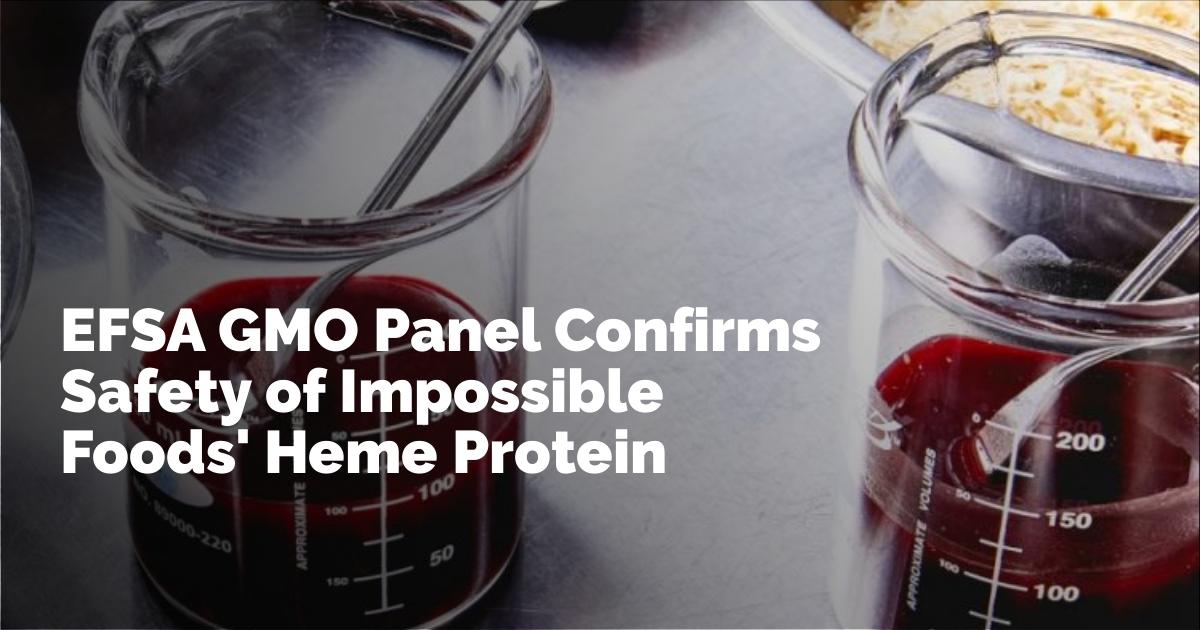Impossible Foods Takes a Step Closer to European Market with EFSA's Positive Opinion
Impossible Foods is edging closer to bringing its innovative plant-based products to European consumers, following a favorable decision from the European Food Safety Authority’s GMO panel. The panel has approved the safety of the company's heme protein ingredient, a significant development in the path to commercializing their iconic products across the European Union.
Understanding the Role of Heme Protein
At the heart of Impossible Foods' flagship plant-based beef products lies soy leghemoglobin, a heme protein known for its distinctive ability to mimic the qualities of meat. This blood-red substance, produced through a genetically engineered yeast strain, is pivotal in replicating the color, flavor, and aroma of meat.
Impossible Foods had ventured into the UK market in 2022, introducing plant-based chicken nuggets and sausage patties without integrating soy leghemoglobin. Although the product was successful, the true essence of Impossible Foods' offerings is tied to this innovative ingredient, particularly in their beef and pork substitutes.
Regulatory Journey and Next Steps
While the recent positive opinion by EFSA signifies a crucial advancement, the path to complete approval involves a multi-layered process. The company is waiting for the culmination of the 30-day comment period, a phase during which any scientific queries will be thoroughly addressed by EFSA and the European Commission.
This scrutiny is part of the due diligence required to ensure the acceptance of soy leghemoglobin as a food additive, paving the way for its incorporation in products across the EU market.
European Expansion: A Strategic Milestone
As Impossible Foods expands its footprint in Europe, this regulatory endorsement plays a significant role. According to the company, securing EFSA's positive opinion was a milestone akin to securing regulatory approvals in other countries such as the United States, Canada, Singapore, Australia, and New Zealand.
An Impossible Foods spokesperson highlighted the positive reception from regulators as a testament to the quality and safety of their soy leghemoglobin, emphasizing the importance of this step towards introducing their flagship products to the European consumer base.
Adaptation and Innovation
When entering the UK market, Impossible Foods demonstrated adaptability by reformulating their sausage patties, typically incorporating soy leghemoglobin, to exclude the ingredient. This strategic move was essential while awaiting regulatory approval to maintain market presence and showcase the versatility of their product range.
The future inclusion of soy leghemoglobin in European recipes promises to bring their products closer to what consumers have experienced in other parts of the world, enhancing the authentic "meaty" experience Impossible Foods is known for.
The Potential Impact on the Plant-Based Market
The approval process highlights not only the complexities of introducing genetically engineered food products to new markets but also the potential impact on the burgeoning plant-based food sector in Europe. With increasing consumer demand for sustainable and ethical food options, Impossible Foods' entry into the EU market is anticipated to spur further innovation and competition within this rapidly evolving industry.
The Road Ahead
Ultimately, the forthcoming decision by the European Commission and EU Member States will determine the timeline for Impossible Foods’ fully-fledged entry into the European market. Until then, the company remains optimistic, anticipating that this development will accelerate their mission to provide sustainable meat alternatives on a global scale.
As Impossible Foods continues to break new ground and expand its horizons, the unfolding of its European journey will be a testament to resilience, innovation, and the shifting landscape of global dietary trends.
출처 : Original Source

